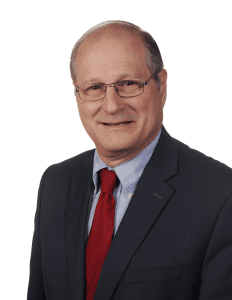Former U.S. Ambassador To Share Middle East Perspectives

Conflicting news about the Middle East can be puzzling. Is ISIS really defeated in Syria? Is Turkey still a U.S. ally? What’s happened to the nuclear deal with Iran? Ambassador Eric S. Edelman will draw from his experience as U.S. Under Secretary of Defense for Policy, former U.S. Ambassador to Turkey and Finland, and as author of Revolution and Aftermath: Forging a New Strategy Toward Iran (2018), to bring clarity to today’s turmoil in the Middle East.
Q: What sparked your initial interest in diplomacy?
As an undergraduate in the late 60s and early 70s, Vietnam and race were the two overwhelming issues facing the U.S. My studies in history at Cornell focused on those two issues. When I pursued my Ph.D. at Yale I initially went there to study the history the American South, but soon switched over to the study of diplomacy. When I completed my degree, jobs for History doctorates were scarce so I took the Foreign Service exam, passed, and never looked back.
Q: What was it like to transition from the Foreign Service to Undersecretary of Defense for Policy?
USDP was actually my second tour in the Department of Defense. I worked on Soviet and East European Affairs in the Pentagon when the Soviet Union collapsed so I was very familiar with the institution when I returned to Turkey to become the chief policy official in the Pentagon. The view from DoD is a bit different from State because the concerns are, of course, focused more on military affairs but the thing that is actually interesting is how much commonality there is between the professionals in both departments.
Q: Did it [working at the Pentagon] change how you saw the Middle East?
Not really. I had worked on Palestinian/Israeli issues at the outset of my career and when I was at the Pentagon (on both occasions) the focus changed dramatically to events in the Gulf and security challenges presented by both Iraq and Iran. But my views on those issues remained largely the same whether I was serving at State, the White House or Defense.
Q: How can disorder or turmoil in the Middle East affect people’s lives in the U.S.?
The U.S. has become a lot more energy self-sufficient over the past decade, and as a result some people believe the region is less important to the U.S. In fact, the region remains important because a major conflict in the region would still have a major price (if not supply) impact on the U.S. economy, perhaps even pitching it into a recession. Moreover, many U.S allies are still dependent on Middle Eastern energy resources. Finally, as the 9/11 attacks demonstrated, what happens in the Middle East doesn’t necessarily stay in the Middle East. We still need to worry about the potential for a mass casualty terrorist attack originating in the region.
Q: What impact do you think the recently announced U.S. pullout from Syria will have on the Middle East?
The terrible suicide bombing in Manbij on Jan. 16 demonstrated that the U.S. pullout is already destabilizing areas of northeastern Syria that had remained pretty stable over the past two years. The U.S. withdrawal will create a vacuum and unfortunately the forces that are likely to fill it (Russia, Iran, Turkey, the Assad regime) are likely to produce more rather than less instability. I don’t think we can rule out that the U.S. will be forced to return to Syria (as we were forced to do in Iraq) under much more difficult and dangerous circumstances in the future.
Q: Your experiences have taken you worldwide, and you address other parts of the world beyond the Middle East. How does the region fit into the bigger picture when it comes to U.S. foreign policy?
Although the region arguably is less vital than it was during the Cold War or even the early post-Cold War it remains an important interest of the U.S. and is likely to remain so for the foreseeable future. Asia is rising in importance because of the flow of wealth and power to the East and Europe remains a key interest of the U.S. But truth be told, as the National Security and National Defense Strategies suggest, it is in the U.S. national interest to maintain a favorable balance of power in all three of these regions, and that will be a tall order for the U.S. in the years ahead.
